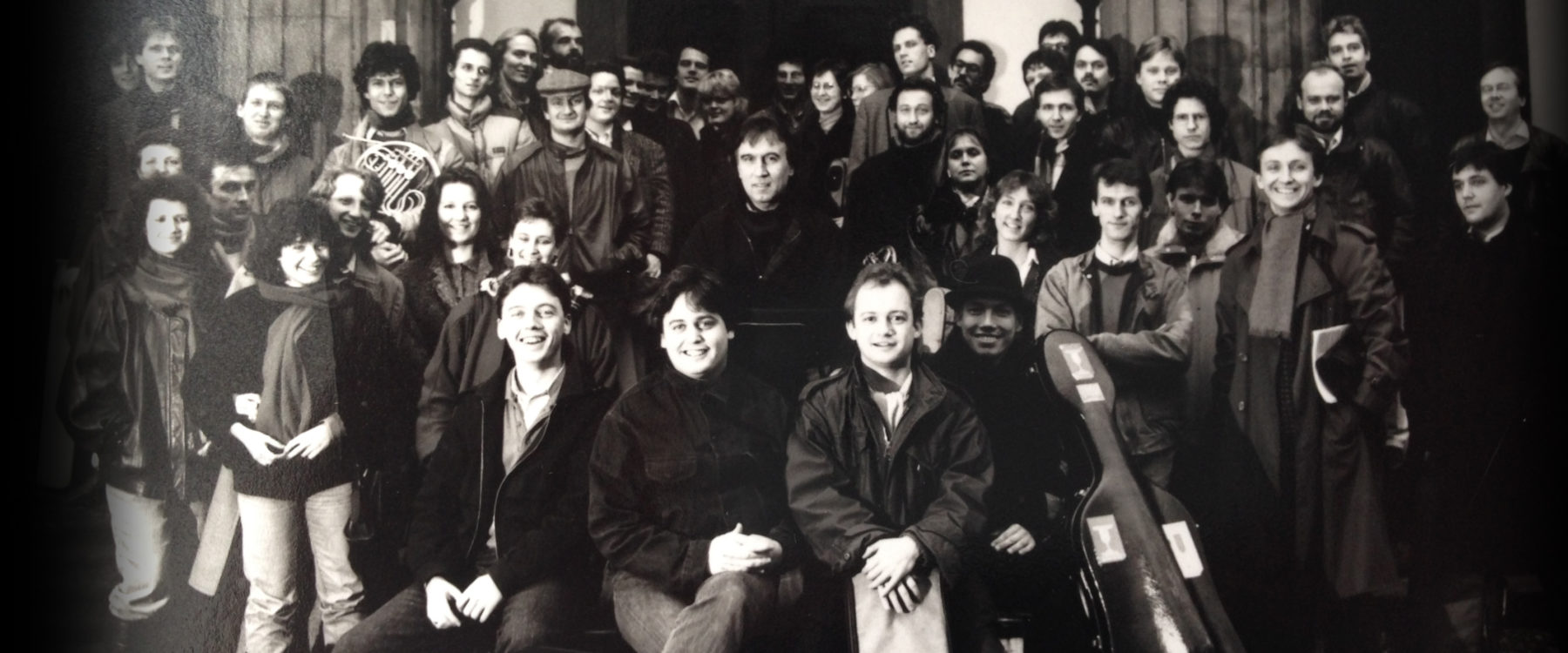Harmony on a honeymoon
The beginnings
For most of us a honeymoon is a happy but dimming memory. For Peter and Victoria Readman it is renewed almost every time they enter a concert hall, because it presaged the birth of what has become one of the best chamber orchestras in the world, the Chamber Orchestra of Europe (COE).
Peter Readman was a passable schoolboy-standard horn player, and Victoria a more than passable pianist, but when they spent their honeymoon at the Salzburg Festival in 1980 neither of them could have dreamed that they were about to play an important part in establishing a new international orchestra. While they were in Salzburg, an old friend, the conductor James Judd, assistant to Claudio Abbado at the European Community Youth Orchestra, invited them to dinner and presented them with an audacious proposal. A group of young players from the orchestra, all fast approaching its upper age limit of 23, wanted to find some way of staying together and capitalising on their experience. The idea was to set up their own chamber orchestra, composed entirely of players in their twenties and drawn from all over Europe. As a financial adviser with a considerable reputation in the City, and a former member of the Government’s “Think Tank”, Peter Readman was an obvious choice to help with the business side of setting up the orchestra.
At first Readman rejected the idea, but he was persuaded to entertain it by Victoria, and on their return to London he sounded out possible sponsors. Predictably the reactions ranged from the pityingly dismissive to the ribald. However, by this time he himself had complete faith in the practicality of the scheme. In May 1981 he took a gamble. He brought members of the embryo orchestra from The Netherlands, Germany, Denmark, France, Italy and all over Britain to London, where they rehearsed as best they could and camped out on the floors and sofas of friends. He booked the Merchant Taylors’ Hall in the City for their first concert, and invited a select audience of 300, many of whose arms were well worth twisting.

The Times
If that first Mozart concert, conducted by Abbado and Judd and with Bishop-Kovacevich as soloist, had not been an outright success the COE would have been still-born. As it was, no-one who was present is ever likely to forget that night. The quality of the playing, and above all the enthusiasm of the players, carried all before them, and by the end of the party that followed £20,000 had been raised in donations and sponsorship. That first triumph has been repeated many times, most notably perhaps in Budapest when not only Abbado, now the orchestra’s Artistic Adviser, but also June Hall, the very professional General Manager, who had come from the LSO, were in tears. The applause continued for half an hour after the last player had left the stage.
Huon Mallalieu
A version of this article first appeared in The Times, July 1984
Next: The 1980’s and 1990’s